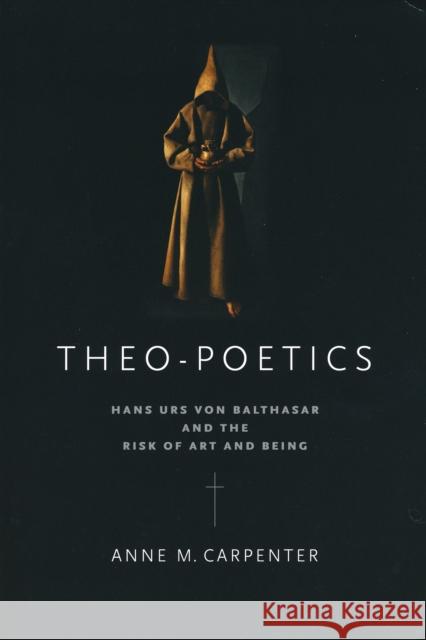Theo-Poetics: Hans Urs Von Balthasar and the Risk of Art and Being » książka
Theo-Poetics: Hans Urs Von Balthasar and the Risk of Art and Being
ISBN-13: 9780268023782 / Angielski / Miękka / 2015 / 268 str.
Swiss theologian Hans Urs von Balthasar (1905-1988) originated much of twentieth- and twenty-first-century theology's renewed interest in aesthetics. Von Balthasar's theology is both poetic and philosophical, and while this combination is often recognized, it calls for an explanation. In Theo-Poetics: Hans Urs von Balthasar and the Risk of Art and Being, Anne M. Carpenter explores von Balthasar's use of poetry and poetic language, and she offers a detailed analysis of his philosophical presuppositions. Carpenter argues that von Balthasar uses poets and poetic language to make theological arguments because this poetic way of speaking expresses metaphysical truth without reducing one to the other.
Carpenter begins with von Balthasar's very early interests in music, literature, and philosophy, in particular his work, Apocalypse of the German Soul. She explores Glory of the Lord and the trilogy, moving through his despair over the possibility of reconciling art and theology. She uncovers the major characteristics of von Balthasar's metaphysical thinking, discussing his interactions with Thomas Aquinas, Karl Barth, and Martin Heidegger to firmly link Christology, metaphysics, and the expressiveness of language. The book concludes by marshaling its themes into a focused evaluation of von Balthasar's "redeemed" theo-poetic as it comes to expression in the poetry of G. M. Hopkins. Carpenter resituates and reevaluates Hopkins's poetry in a new context, placing him in the school of Aquinas rather than Scotus, and shows us how metaphysics is necessary for a vigorous understanding of language. "How do we value the theological in artistic works? In this book Anne Carpenter creates a significant map to the expansive landscape proposed by theological aesthetics. As she reenacts the "interplay" of poetry and philosophy yielding theology in von Balthasar and his interlocutors, Carpenter points toward the incarnated beauty of human creativity and the inherent unity of reason and heart. Through her careful 'untangling' of the role of the poetic in making theologizing possible, Carpenter confirms gravitas on the utterances of artists known and unknown, whose creative abundance overflows providing us new and important vistas into the in-breaking glory of God." --Cecilia Gonzalez-Andrieu, Loyola Marymount University "This is a beautifully written work engaging von Balthasar's attempt to wed aesthetics back into the essence of theology. Carpenter presents a sophisticated and creative study of the importance of the aesthetics of the written word in order to reveal the importance of von Balthasar's project but also to advance it. The work presents a clear overview of the heart of von Balthasar's work, but also a fresh application of it through an analysis of poetry. The book provides a rich source for contemplating the eternal Word, God's most creative act of poetry uttered eternally." --John Dadosky, Regis College/University of Toronto "Anne M. Carpenter turns a lot of difficult and abstruse research about Hans Urs von Balthasar in the scholarly literature into a lively and readable book. The volume achieves the goal of explaining the poetic form of von Balthasar's writing, tracing it back to the centrality of the concept of expression in his philosophical theology. The special value of the book is that it explains new developments of von Balthasar and recent objections to von Balthasar in a way that makes them accessible, gathering a lot of diverse scholarship into a single quite short book." --Francesca Murphy, University of Notre Dame










